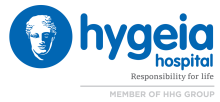Latest Developments in Liver Disease in Thalassemia: 3rd Scientific Meeting at MITERA
07 June 2017
The 3rd consecutive Scientific Meeting organized by the HYGEIA Group Hepatology Department will focus on Liver Disease in Thalassemia. The Meeting is scheduled for Friday June 9, 2017 and will take place at the N. Louros Conference Center, located within MITERA Hospital.
Meanwhile, the progress made so far in the National Plan for the Elimination of Hepatitis will be presented for the first time in Greece during the Meeting. The Plan is a collective national effort, similar to the European and global efforts underway, and will span over a decade.
The aim of the Meeting is to highlight the significant changes that have contributed to the natural progression of the disease, which is currently affecting 4,500 Greek patients, as well as to offer valuable insights into the diagnosis and treatment of liver-related disorders. It is estimated that the impact of liver complications has increased substantially, making liver disease – and liver malignancies in particular – the most common cause of death among these patients, with geometric progression.
As Mr Dimitrios Kountouras, Director of the HYGEIA Group Hepatology Department & Scientific Advisor of the Thalassemia International Federation, noted, “Our understanding of the risk factors and pathologic physiology of these patients’ liver has changed dramatically, both in terms of treatment choices and in planning for the future. Iron regulation using contemporary iron chelation therapies has significantly increased the survival of these patients and has markedly improved their quality of life. In addition, while in the past the treatment of hepatitis C was an intractable problem, nowadays this is being reversed. The new hepatitis C treatments are administered orally, in one or two doses, without side-effects and with 100% efficacy in some cases. These achievements in drug technology and therapeutic techniques have heightened expectations for permanent elimination of the virus.”
Furthermore, reference will be made to epidemiological data, treatment results and therapeutic techniques for liver malignancies and hepatocellular carcinoma, which is taking on epidemic proportions in this patient group, while all the latest advancements in treatments will be presented extensively.





































